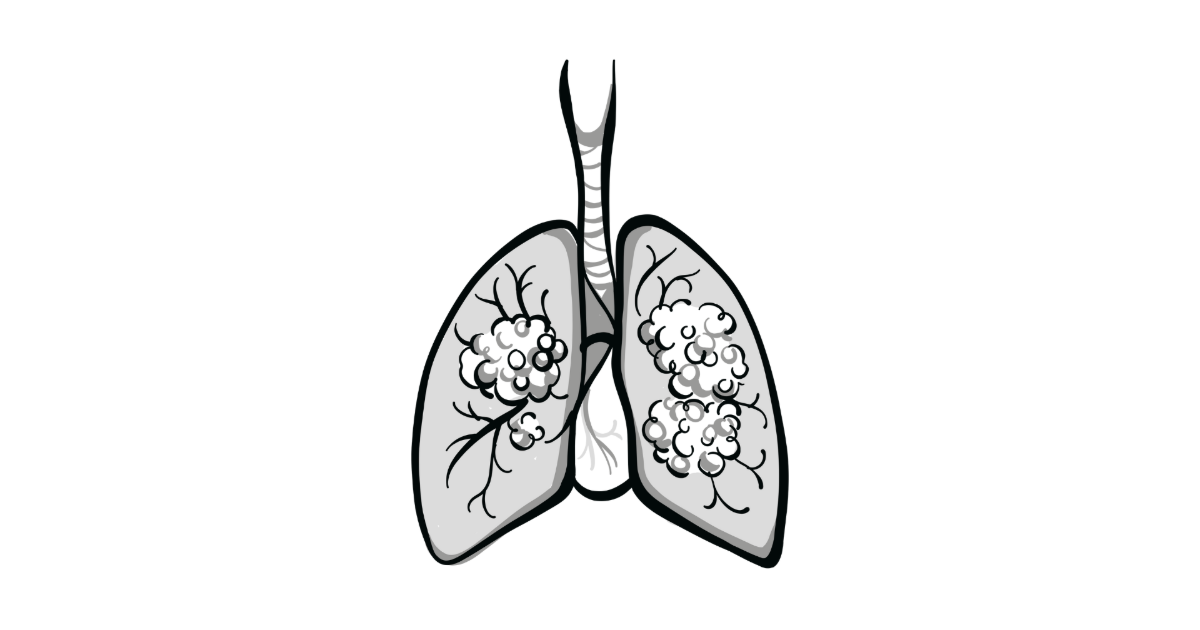Lung cancer: © Crystal Light – stock.adobe.com
New, long-term follow-up data from the phase 3 GEMSTONE-302 trial (NCT03789604) confirm that the addition of sugemalimab (Cejemli) to first-line platinum-based chemotherapy provides a significant and durable overall survival (OS) benefit for patients with metastatic non–small cell lung cancer (NSCLC) who lack common genomic alterations. The 4-year follow-up, published in The Lancet Oncology, demonstrates that this combination therapy doubles the 4-year OS rate compared to chemotherapy alone, establishing it as a compelling standard of care option.1,2
The multicenter, double-blind study enrolled 479 patients with metastatic squamous or nonsquamous NSCLC without known sensitizing EGFR, ALK, ROS1, or RET genomic alterations. Patients were randomized in a 2:1 ratio to receive either sugemalimab plus platinum-based chemotherapy (n = 320) or a placebo plus chemotherapy (n = 159). The primary analysis previously demonstrated significant improvements in both progression-free survival (PFS) and OS. This latest report, with a median follow-up of over 43 months, reinforces those initial findings with extended survival data.
At the data cutoff in May 2023, the median OS for the sugemalimab group was 25.2 months (95% CI, 20.1–30.2), a substantial improvement over the 16.9 months (95% CI, 12.8–20.7) observed in the control group. This translated to a hazard ratio (HR) of 0.68 (95% CI, 0.54–0.85), indicating a 32% reduction in the risk of death. The survival benefit was particularly striking at the 4-year mark, with an OS rate of 32.1% in the sugemalimab arm compared with just 17.3% in the placebo arm. This long-term benefit was observed across different histological subtypes, with 4-year OS rates of 27.6% vs 11.7% in squamous NSCLC and 35.5% vs 20.2% in nonsquamous NSCLC.
The initial benefit in PFS also remained robust over the extended follow-up. The median PFS was 9.0 months (95% CI, 7.4–10.9 months) with the addition of sugemalimab, a significant increase from the 4.9 months (95% CI, 4.8–5.2 months) in the control group (HR, 0.49; 95% CI, 0.39–0.60). This earlier finding highlighted the combination’s ability to delay disease progression effectively.
In terms of safety, the long-term data from the GEMSTONE-302 trial did not introduce any new safety signals. The rates of treatment-related grade 3 or 4 adverse events were similar between the sugemalimab and control groups (56% vs 57%). The most common high-grade adverse events included decreased neutrophils (33% vs 33%), decreased white blood cells (15% vs 17%), and anemia (14% vs 11%). The incidence of treatment-related serious adverse events was 26% in the sugemalimab group and 20% in the control group. No new treatment-related deaths were reported since the previous interim analysis, which showed a treatment-related death rate of 3% versus 1%.
The extended outcomes from the GEMSTONE-302 trial underscore the long-term efficacy and manageable safety profile of sugemalimab in combination with platinum-based chemotherapy.
“These results underscore the efficacy of sugemalimab plus platinum-based chemotherapy as a standard first-line treatment option for both squamous and nonsquamous metastatic NSCLC while maintaining a manageable safety profile,” the study authors wrote. Findings support the continued use of this regimen as a potent first-line treatment for patients with metastatic NSCLC who do not have common driver mutations, offering clinicians a valuable tool to improve patient outcomes and survival duration.
